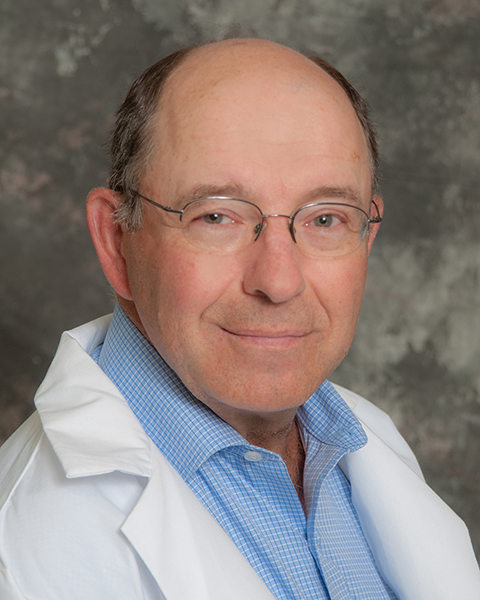Learn how colon cancer is one of the most treatable forms of cancer by taking our risk assessment quiz online. It only takes five minutes.
Colonoscopies Save Lives

Colorectal cancer is one of the most commonly diagnosed cancers and fortunately, it can often be detected early – and successfully treated. If you’re 45 or older, it’s time to schedule a colonoscopy.
“A colonoscopy is an outpatient procedure performed while you are asleep that allows the gastroenterologist to inspect the inside of your colon for signs of cancer,” said Richard F. Latuska, MD, a board-certified gastroenterologist with Penn Highlands Gastroenterology. “A colonoscopy is the only cancer screening available that can also prevent cancer by finding and removing polyps before they become cancerous.”
The American Cancer Society recommends that people of average risk for colorectal cancer should have their first colonoscopy starting at age 45. You are considered at an average risk for colorectal cancer if you:
- Do not have a personal history of polyps, colorectal cancer or inflammatory bowel disease or of a prior cancer that required getting radiation to the abdomen or pelvic area.
- Do not have a family history of colorectal cancer.
- Do not have confirmed or suspected hereditary colorectal cancer syndrome.
People with a higher risk of colorectal cancer may need to start screening earlier than age 45. If you have a family history of colorectal cancer or certain types of polyps, a personal history of inflammatory bowel disease such as ulcerative colitis or Crohn’s disease, family history of a hereditary syndrome such as familial adenomatous polyposis (FAP) or Lynch syndrome or a history of radiation to the abdomen or pelvis to treat a prior cancer, talk to your health care provider about the best screening schedule for you.
Before a colonoscopy, your gastroenterologist will give you specific instructions about how to prepare. You will likely be asked to start on a low-fiber diet a few days before the procedure. You will then be on a clear liquid diet the day before the procedure. At this time, you will take a prescribed laxative to cleanse your colon.
During the colonoscopy, your gastroenterologist will examine the large intestine through a small tube and camera that is inserted through your anus while you are sedated. The gastroenterologist will remove any polyps detected during the procedure to inspect for colon cancer. If the polyps are not cancerous, removing them helps prevent them from developing into colon cancer.
“Colonoscopies have a bad reputation, but they are usually painless,” said Dr. Latuska. “In fact, because you are sedated, you likely will not feel anything, and you probably will not even remember the procedure.”
The colonoscopy itself typically takes only 15 to 30 minutes, although patients should expect to spend two to three hours at the facility for pre-surgery prep and post-surgery observation.
Patients may feel groggy, tired or nauseous from the anesthesia after a colonoscopy. Slight irritation to the anus and rectum from the prep or procedure may be present. Temporary light cramping or bleeding may also occur, but anything severe is rare and should be addressed immediately. Your gastroenterology team will give you instructions on what to watch for following the procedure.
If your gastroenterologist does not find any polyps or have any concerns during your first colonoscopy, most people only need to repeat the procedure every 10 years. People 75 and older should consult with your physician about the benefits and risks of colonoscopy.
The physicians at Penn Highlands Gastroenterology have specialized training that allows them to provide high-quality and individualized care for people with gastrointestinal or GI conditions. They diagnose and treat diseases of the colon and rectum as well as esophagus, stomach, small intestine, pancreas, gallbladder, bile ducts and liver. Colonoscopies can be done on an outpatient basis at any Penn Highlands Healthcare hospital or The Endoscopy Center in DuBois.
To learn more, visit www.phhealthcare.org/gi.

